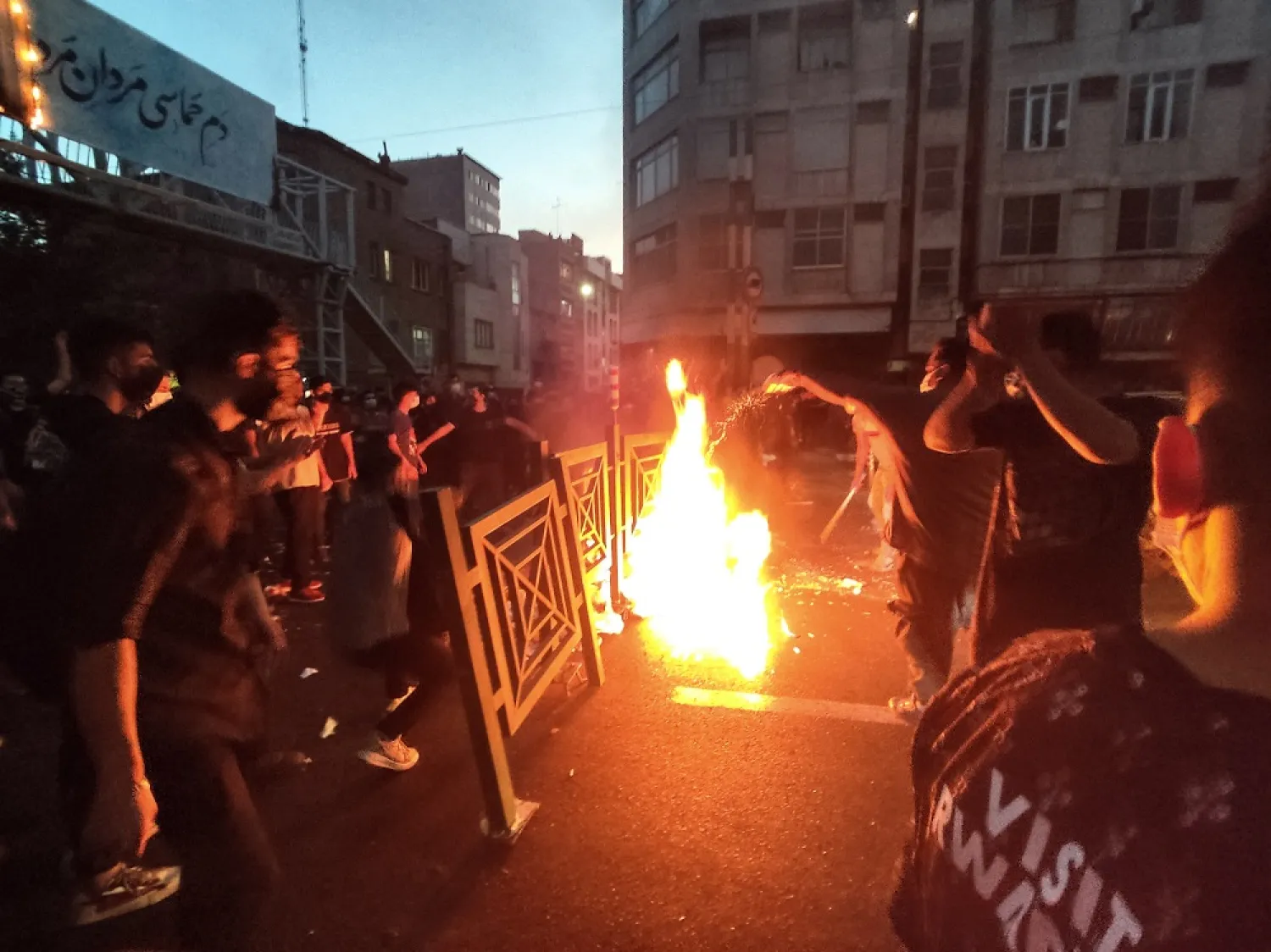Iranian riot police deployed in Tehran's main squares on Wednesday to confront people chanting "death to the dictator" as nationwide protests over the death of young Iranian woman Mahsa Amini in police custody piled pressure on authorities.
Amini, 22, from the northwestern Kurdish city of Saqez, was arrested on Sept. 13 in Tehran for "unsuitable attire" by the morality police who enforce the country's strict dress code.
She died three days later in hospital after falling into a coma, sparking the first big show of opposition on Iran's streets since authorities crushed protests against a rise in gasoline prices in 2019.
Despite a growing death toll and a crackdown by security forces using tear gas, clubs and, in some cases, live ammunition, videos posted on social media showed Iranians calling for the end of the republic establishment's more than four decades in power.
Protests have continued for almost two weeks, spreading to at least 80 cities and towns around Iran, from Tehran to the southeastern port of Chabahar.
"We will fight, we will die, we will take Iran back," chanted protesters in Tehran's Ekbatan neighborhood, a video posted on Twitter showed.
A video from Chabahar showed riot police firing tear gas to disperse protesters, chanting "Death to (Supreme Leader Ali) Khamenei".
State media said 41 people, including members of the police and a pro-government militia, had died during the protests. Iranian human rights groups have reported a higher toll.
Iran's state news agency IRNA reported that the country's elite Revolutionary Guards launched missile and drone attacks at militant targets in the Kurdish region of northern Iraq on Wednesday.
A senior member of Komala, an Iranian Kurdish opposition party, told Reuters several of their offices were struck and there had been casualties and material damage.
Iranian authorities have blamed armed Iranian Kurdish dissidents for igniting the unrest in the country, particularly in the northwest where most of Iran's over 10 million Kurds live.
Videos posted on activist Twitter account 1500tasvir, with 145,000 followers, showed protesters gathering at Shiraz Medical School to protest against Amini's death.
Early Wednesday, a video showed protesters in Tehran chanting "Mullahs get lost!" "Death to the dictator!" and "Death to the leader because of all these years of crime!". Reuters could not verify the authenticity of videos on social media.
UN High Commissioner for Human Rights has called on Iran's clerical rulers to "fully respect the rights to freedom of opinion, expression, peaceful assembly and association".
In a statement from the UN human rights office on Tuesday, spokesperson Ravina Shamdasani said that reports indicated "hundreds have also been arrested, including human rights defenders, lawyers, civil society activists and at least 18 journalists".
Amini's death has drawn widespread international condemnation while Iran has blamed "thugs" linked to "foreign enemies" for the unrest. Tehran has accused the United States and some European countries of using the unrest to try to destabilize the country.









